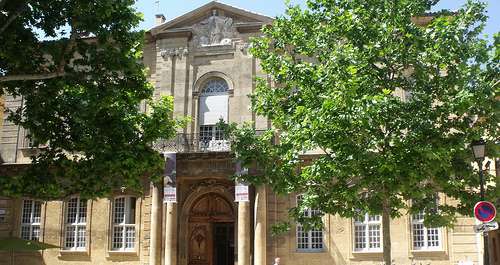The following article is archived and is no longer considered up-to-date. Please interpret its content in the context of the publishing date.

ARCHIVED
Should I Pursue a PhD in Political Science?
Read a summary using the INOMICS AI tool
As another season of graduate school applications comes to a close, we wanted to offer a few diverse perspectives on the matter for any of you still on the fence, or for those of you planning ahead for next year. Although deadlines for this coming fall have already passed for most schools in North America, potential PhD candidates looking at European, Asian, African or Latin American schools may still have some time to send in an application.
Whether you’re unsure about getting a PhD altogether or if it’s just political science you’re feeling wary of, hopefully this post will help you clear some of the doctoral application fog.
1) If you are interested in pursuing a PhD but are stuck on the dissertation proposal, try perusing some of the recent literature for concrete ideas to build off of. The rather young European Political Science Association founded the Political Science Research and Methods journal last year, while other journals such as the American Political Science Review or the British Journal of Political Science are more well-established and offer a wealth of top-notch articles. Looking through the sites of various regional associations, such as the Latin American Political Science Association, the Asian Political and International Studies Association or the African Politics Conference Group, can also help you get a better idea of current scholarship across the diverse areas within political science.
2) This post from Smoke-Filled Room, a blog written by a group of current doctoral students in political science, offers a breakdown of what to consider when choosing a poli sci PhD program. While the advice offered here is drawn from a U.S. American student population, much of it is highly transferable.
3) This list of pros and cons from the blog Outside the Beltway is based largely on what one’s aims are post-PhD. Keeping long-term career goals in mind can help you target your application in terms of schools and subject matter.
4) In this piece for Foreign Policy, international politics professor Daniel Drezner offers 5 dos and don’ts for creating a solid application. In this follow-up article, he specifically addresses post-graduates, offering concrete advice for how to put together a strong application after a few years out of university.
5) This forum, called the Grade Café, offers current, potential and former graduate students a place to discuss any and all relevant topics. In this thread, the question of American versus European political science PhD programs is debated, offering insight into personal opinions regarding the location of one’s studies.
6) Beyond the Grad Café, there are a number of other blogs and forums worth checking out, particularly those written by students and/or professors with a specific focus on political science and related fields. These include the student-centric IR Blog; The Monkey Cage, which is written by five professors and includes relevant discussion and the publication of recent articles; Democracy and Democratization, which covers an array of topics from diverse students and faculty from the Social Science Research Center Berlin and The Duck of Minerva, which offers commentary and information from a wide variety of contributors from within academia.
7) While worries about money can put the brakes on any endeavor, don’t let it be what’s keeping you from moving forward with your education. Take a look at this post from INOMICS guest blogger Laura Pennington about the many ways to finance your PhD studies.
8) Finally, this data from the American Political Science Association indicates that job openings for political scientists at universities are once again on the rise after the tailspin during the recession. While the academic job market is still highly competitive, these numbers offer hope!
If you’re still unsure about which programs to apply to, however, you can find a plethora of options on the INOMICS site. To help narrow down your list, keep an eye out for our upcoming post on top political science departments!
Photo credit: Elliott Brown
-
- PhD Program, Program, Postgraduate Scholarship
- Posted 1 week ago
PhD Program in Economics - 6 Fully Funded Scholarships
at Luiss Guido Carli University of Rome in Rome, Italy
-
- Postdoc Job
- Posted 1 week ago
Postdoctoral Research Fellow Opportunity
At University of Notre Dame in Notre Dame, United States
-
- PhD Candidate Job
- Posted 2 weeks ago
3 PhD positions at the Vienna Graduate School of Economics (VGSE)
At Vienna Graduate School of Economics - VGSE in Vienna, Austria














